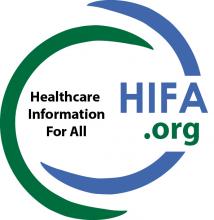
Healthcare Information For All (HIFA) has long been advocating that medical journal editors across the world should consider the information needs of the vast majority of the global population who do not have English as a first language.
In October 2018, the HIFA Multilingualism working group published a letter in The Lancet Global Health, in which we noted that 'most health research is published only in English... [including] most of the health research published in countries in which English is not an official language and in which most people who would benefit from the research cannot speak English.' We conducted a Medline search, for example, which suggested that the vast majority of research from Mozambique (a Portuguese-speaking country) appears to be published in English only, without any content in Portuguese. This anomaly is likely replicated worldwide and represents a substantial barrier to evidence-informed policy and practice.
In the letter, we called on the medical journal publishing industry, including the World Association of Medical Editors (WAME), 'to take action to address this anomaly. The simplest first step [being] for journals to make at least the abstract available in the main language or languages of the country in which the research was done.'
The WAME Board of Directors has now approved the following addendum to the WAME Statement on Promoting Global Health:
HIFA warmly welcomes this new statement from WAME. Rightly, this is a recommendation and is not mandatory. Journal editors should be free to choose how to proceed, taking into account not only the country where the research was undertaken, but also (and even more importantly) the language profile of the users of that research.
A few journals already encourage authors to submit translated abstracts of their accepted manuscripts in a language relevant to the research. We encourage others to do the same so that we can progressively realise a world where every person has access to the information they need - in a language they can understand. It will be important to work with publishers and authors to explore different approaches to implement and monitor this recommendation. We welcome new members to join the HIFA Multilingualism group to help take this forward.
Meanwhile HIFA is committed also to facilitate communication among global health professionals in languages other than English. We invite English, Portuguese, French and Spanish speakers to join our respective forums:
Join HIFA-English
Junte-se ao HIFA-Portuguese
Rejoignez HIFA-Français
Únase a HIFA-Español
We aim to add a fifth language in 2020...
[1] Improving the availability of health research in languages other than English
The Lancet Global Health, Published: September 11, 2018
On behalf of the HIFA Multilingualism working group.

